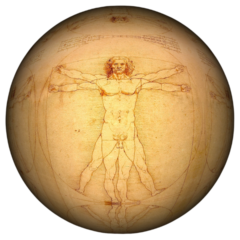Ernst Haeckel, a 19th-century German biologist, proposed the theory of recapitulation or “ontogeny recapitulates phylogeny.” This theory suggests that the development of an individual organism (ontogeny) as an embryo mirrors the evolutionary history of the species (phylogeny). According to Haeckel, the stages of development an embryo goes through, are similar to the stages of evolution that its ancestors experienced.
Haeckel’s theory has been widely criticized for being oversimplified and inaccurate. The idea that an organism’s development repeats its evolutionary history is an oversimplification of the complex relationship between ontogeny and phylogeny. In addition, Haeckel’s theory has been accused of being based on biased observations, misrepresentations, and fabrications.
Despite these criticisms, the theory of recapitulation has had a significant impact on the fields of evolutionary biology and developmental biology. It highlighted the importance of studying embryonic development to understand the evolutionary history of species.
The theory was supported by fabricated data and was not widely accepted but it has a few interesting points: most embryos from different species look similar and have features of inferior species such as bronchi in their progression and then lose the inferior features. By the way
Further reading and suggested videos:
Do you like this topic? Find out more!

